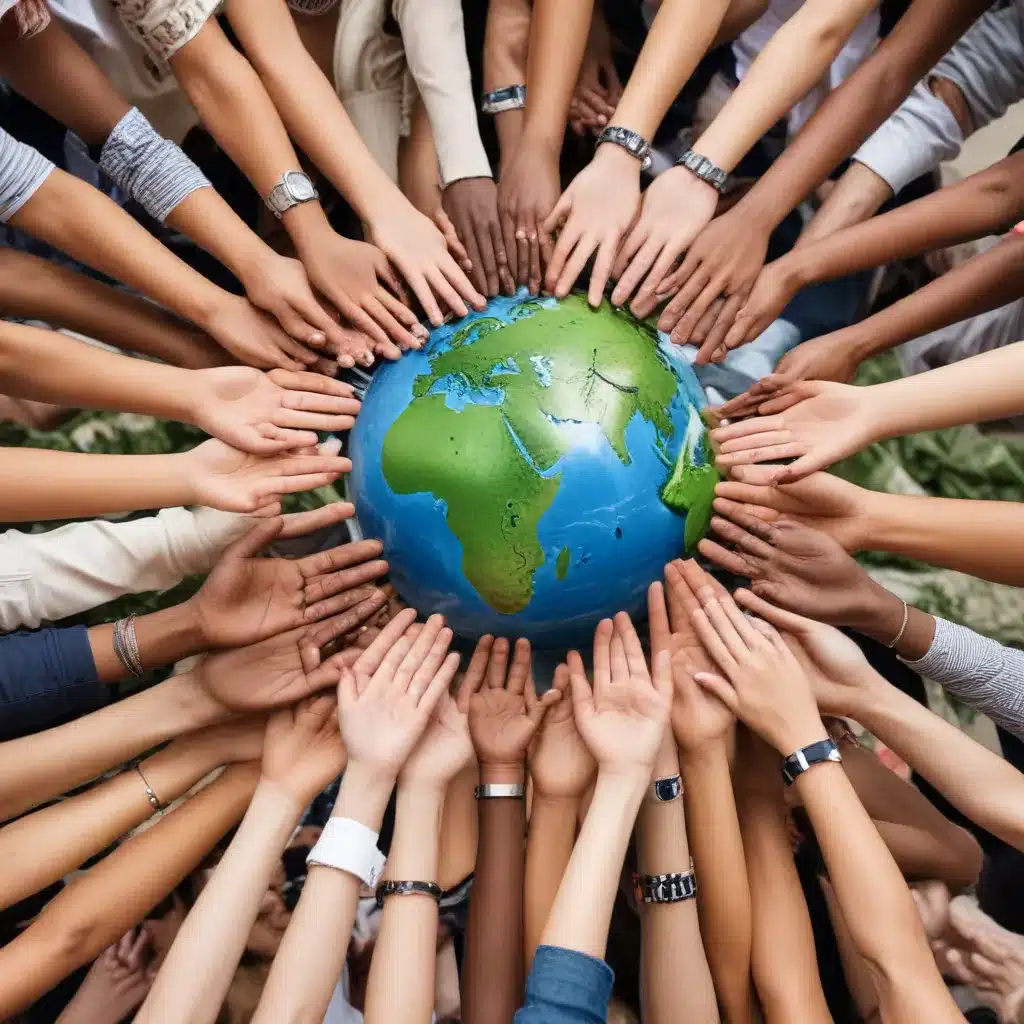
The Importance of Intercultural Dialogue
Intercultural dialogue is a vital component of sustainable development and global progress. As the United Nations emphasizes, “Dialogue among civilizations is part of the fundamental structure of the United Nations.” This principle underscores the belief that through open and respectful exchange of ideas, we can overcome discord and celebrate the inherent value of our diverse identities.
Conflicts often arise due to intolerance stemming from ignorance. By fostering intercultural dialogue, we can move beyond these divisions and cultivate a deeper understanding of different perspectives and practices. This, in turn, can create an environment more conducive to sustainable development, social cohesion, and peaceful coexistence.
The Role of Education in Intercultural Dialogue
Educational institutions, such as Stanley Park High School, play a crucial role in nurturing intercultural dialogue. As hubs of knowledge and discourse, universities and schools have the unique capacity to bring together individuals from diverse backgrounds and facilitate meaningful exchange.
Young people, in particular, have a vested interest in building more equitable, inclusive, and sustainable societies. Through their active engagement in intercultural dialogue, they can help shape the social, economic, political, and cultural fabric of their communities and countries.
Developing Intercultural Competencies
To foster effective intercultural dialogue, it is essential to cultivate specific competencies. According to UNESCO, these include:
Structural Domains
- Policies and legal frameworks that support intercultural dialogue
- Institutional structures and processes that enable dialogue
- Social and cultural norms that promote understanding and respect
Supporting Domains
- Individual skills and knowledge required for effective dialogue
- Shared values and principles that underpin intercultural exchange
- Attitudes and behaviors that foster empathy and open-mindedness
By studying the strengths and weaknesses within these domains, policymakers and practitioners can develop targeted interventions to enhance the enabling environment for intercultural dialogue. This, in turn, can contribute to the prevention of conflict, the protection of human rights, and the building of sustainable peace.
Celebrating Cultural Diversity
The United Nations has designated May 21st as the World Day for Cultural Diversity for Dialogue and Development, providing an opportunity to highlight the richness of the world’s cultures and the essential role of intercultural dialogue in achieving sustainable development.
Cultural diversity is not only an asset for economic growth but also a means of leading a more fulfilling intellectual, emotional, moral, and spiritual life. The UNESCO Convention on the Protection and Promotion of the Diversity of Cultural Expressions recognizes the inherent value of cultural diversity and the need to safeguard it.
The Sustainable Development Goals and Culture
The adoption of the 2030 Agenda for Sustainable Development by the United Nations has further emphasized the importance of culture in achieving global progress. The 17 Sustainable Development Goals (SDGs) can be more effectively realized by drawing upon the creative potential of the world’s diverse cultures and engaging in continuous dialogue to ensure that all members of society benefit.
The UNESCO Culture|2030 Indicators framework provides a comprehensive set of thematic indicators to measure and monitor the enabling contribution of culture to the implementation of the SDGs. This framework highlights the critical role of culture in protecting the environment, reducing inequalities, and promoting decent work.
Challenges and Opportunities
Despite the recognized importance of intercultural dialogue, challenges remain in fully realizing its potential. Development assistance devoted to culture and recreation has been on the decline, and significant disparities persist between developed and developing countries in the cultural and creative sectors.
However, there are also opportunities to address these challenges. The recent MONDIACULT 2022 conference, the largest world conference devoted to culture in the last 40 years, affirmed culture as a “global public good” and called for its integration as a specific goal in the development agenda beyond 2030.
Fostering Intercultural Dialogue at Stanley Park High School
At Stanley Park High School, we are committed to fostering intercultural dialogue and supporting the development of global citizenship among our students. Through our curriculum, extracurricular activities, and community engagement, we strive to create an environment that celebrates diversity, promotes understanding, and empowers young people to contribute to sustainable development.
Global Citizenship Programme
Our Global Citizenship Programme encourages students to explore different cultures, engage in cross-cultural exchanges, and develop the skills and knowledge necessary for effective intercultural dialogue. This includes opportunities for international travel, language learning, and collaborative projects with partner schools around the world.
Intercultural Clubs and Societies
Students at Stanley Park High School can participate in a variety of intercultural clubs and societies, such as the Diversity Society, the International Students’ Association, and the Interfaith Forum. These groups provide platforms for students to share their cultural experiences, discuss global issues, and collaborate on initiatives that celebrate diversity.
Community Outreach and Partnerships
We actively engage with local and global partners to create opportunities for intercultural dialogue and sustainable development. This includes hosting cultural festivals, organizing workshops and lectures, and collaborating on community projects that bring together people from diverse backgrounds.
Integrating Intercultural Perspectives Across the Curriculum
Intercultural dialogue and global citizenship are not confined to specific subjects but are integrated throughout our curriculum. From history and geography to the arts and sciences, we strive to incorporate diverse perspectives and encourage students to consider the international implications of their learning.
Conclusion
Fostering intercultural dialogue is essential for achieving sustainable development and building a more inclusive, equitable, and peaceful world. As an educational institution, Stanley Park High School is committed to empowering our students to become global citizens who can navigate the complexities of our interconnected world and contribute to the betterment of their communities and the planet.
By embracing cultural diversity, cultivating intercultural competencies, and engaging in meaningful dialogue, we can unlock the transformative potential of intercultural exchange and pave the way for a more sustainable and harmonious future.

